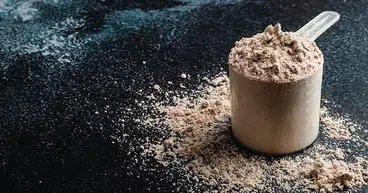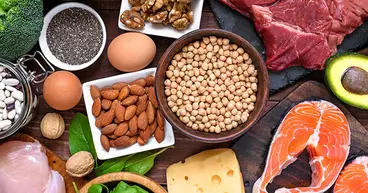 |||
3 minutes
|||
3 minutes
WHAT IS WHEY?
Milk contains two proteins: whey and casein. Whey protein powder is often derived from cheese making. When a coagulant (usually renin) is added to milk, the curds (casein) and whey separate. The curds are used to make cheese or casein protein, and the whey can be used to make whey protein powders. Both whey and casein are considered complete proteins because they naturally contain all 9 essential amino acids needed by the body. Whey is sometimes categorized as a fast-digesting protein, where casein is a slower-digesting protein.
WHICH WHEY IS RIGHT FOR YOU?
Whey protein concentrate (WPC) is made by separating whey protein from the casein and water in milk, and whey protein isolate (WPI) is made by filtering some of the naturally occurring fat and carbohydrate out of WPC. Both are high-quality proteins derived from milk. However, gram for gram, WPI contains less fat, cholesterol, and carbohydrate than WPC, and may be more expensive due the extra filtration steps required for its production.
Regardless of your goals, all whey proteins are complete proteins that can be used to help meet overall protein needs. WPC and whey protein blends are a great option for those who are looking for a high quality, cost-effective protein.
On the other hand, WPI may be a better fit for those looking for a premium protein supplement with minimal fat and lactose (carbohydrate) and who don’t mind a slightly higher price point. You can find the protein sources used in a product in the nutrition or supplement facts panel on the label.



